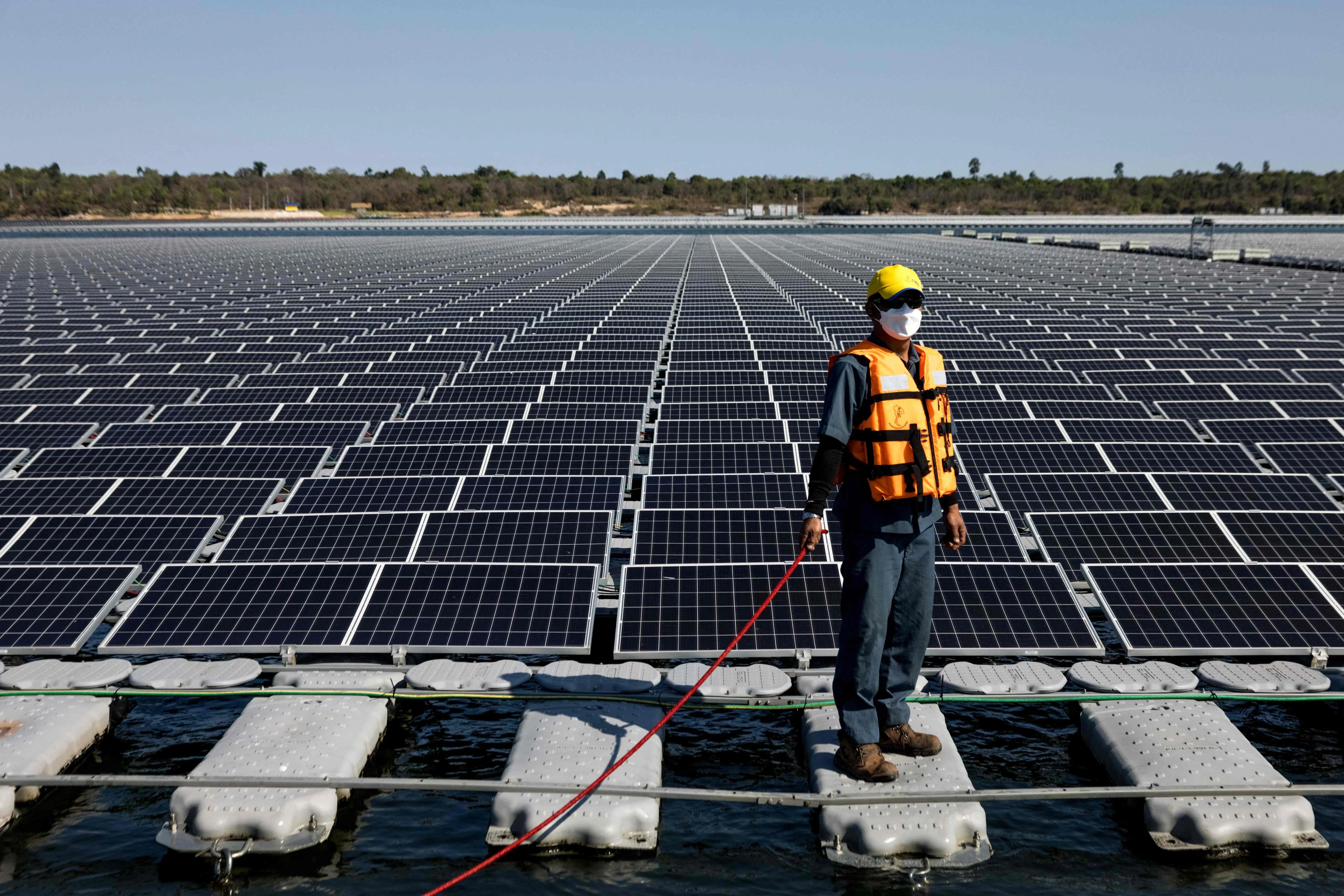Copyright scmp

Carbon dioxide emissions are expected to peak globally next year, marking a turning point in the energy transition, with Asia set to play a prominent role in decarbonisation. The findings were revealed in a report by Rystad Energy released on Thursday, which noted that while the shift to renewable energy had gained momentum, peak oil demand was set to occur only by the 2030s, with near-term demand for fossil fuels including gas likely to be resilient. Emerging countries such as Pakistan and Thailand are among leaders in renewable energy adoption, putting the world on track for a 1.9 degree Celsius temperature rise by 2100 – below the upper range of the 2015 Paris Agreement. While the world moves from growth to decline in emissions, the report urges faster deployment of renewables to limit warming to 1.5 degrees or the lower range of the Paris deal. By 2030, low-carbon sources were expected to capture 46 per cent of all energy investment, compared with 30 per cent for fossil fuels, with electricity grids accounting for 24 per cent, the report said. Asia dominates low-carbon energy deployment across all major technologies, accounting for 65 per cent of solar, 64 per cent of wind, 48 per cent of hydrogen, and 41 per cent of battery investment in 2025. “This largely reflects China’s drive for energy independence from oil and gas imports, transiting vulnerable maritime chokepoints, and increasingly contentious supplier nations,” the report said. Fossil fuels still provided the bulk of electricity generation globally, but their share was eroding rapidly, it added. Asia is taking the lead in global electrification, with eight of the top 10 countries showing the highest share of electricity in their useful energy mix located in the region, according to Rystad. It identified Bangladesh, Vietnam, the Philippines and Malaysia among nations which had rapidly advanced electrification, leapfrogging traditional energy systems. The report provides a ray of hope ahead of the UN Cop30 climate change conference from November 10 to 21 in the Brazilian city of Belem, showing that the effects of climate change can be limited by accelerating national climate goals. Electricity consumption patterns are lopsided as two-thirds of the power source are dominated by just seven countries in the world, with China and the United States among the biggest users. Looking ahead, China is expected to experience the largest absolute growth, adding about 2,400 terawatt hours of demand by 2035 as electrification deepens. India, meanwhile, is projected to record the fastest relative growth, more than doubling its demand as urbanisation and rising incomes reshape lifestyles, according to the Rystad report. In a separate report released on Thursday by civil society organisations and communities including the Centre for Energy, Ecology, and Development, EarthRights International and Energy Shift Southeast Asia, the groups urged Asean to move away from fossil fuels. “Southeast Asia stands at the forefront of the climate and biodiversity crisis,” the groups said. “Our region – home to the Coral Triangle and some of the world’s richest ecosystems – faces worsening heatwaves, floods, and rising seas. Addressing these crises is no longer optional; it is essential for our collective survival.” The joint call comes at a time when the Philippines, a climate-vulnerable nation, assumes the chairmanship of the Association of Southeast Asian Nations in 2026, following Malaysia’s term. With Cop30 approaching, the groups reiterated the need for Southeast Asian governments to align their nationally determined contributions with the 1.5-degree goal. They also urged Global North countries to urgently deliver climate finance. The Cop30 conference will be held at a time when the US under President Donald Trump remains largely disengaged from climate challenges, following his successive orders to withdraw the world’s largest economy from the 2015 Paris Agreement. A Lancet report released on Wednesday also underscored the need for the transition, warning that the costs of overreliance on fossil fuels were already taking a toll on health systems and livelihoods, with 13 of 20 indicators tracking health threats reaching unprecedented levels. It said the warming effects of climate change had seen the rate of heat-related deaths surge 23 per cent since the 1990s, to 546,000 a year, while air pollution from the continued burning of fossil fuels had resulted in a staggering 2.5 million deaths every year. “This Lancet report is a devastating global health audit, and the findings are clear: our addiction to fossil fuels is killing us by the millions,” Harjeet Singh, climate activist and founding director of Satat Sampada Climate Foundation, told This Week in Asia. Dependence on fossil fuels also puts an unbearable strain on government budgets, with a total of US$956 billion spent on net fossil fuel subsidies in 2023. This increased financial pressure and dwarfed the US$300 billion a year that the international community committed at Cop29 to tackle climate change worldwide, the Lancet report added. “This is economic self-sabotage. We lost over a trillion dollars globally last year in heat-related labour alone, while governments simultaneously handed nearly a trillion dollars in subsidies to the very industry causing the crisis,” Singh said. “The only solution is to turn off the tap.”



